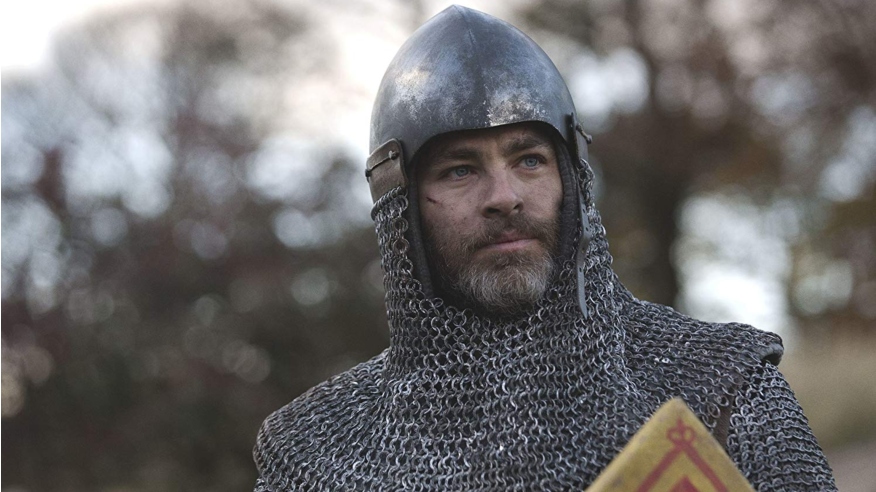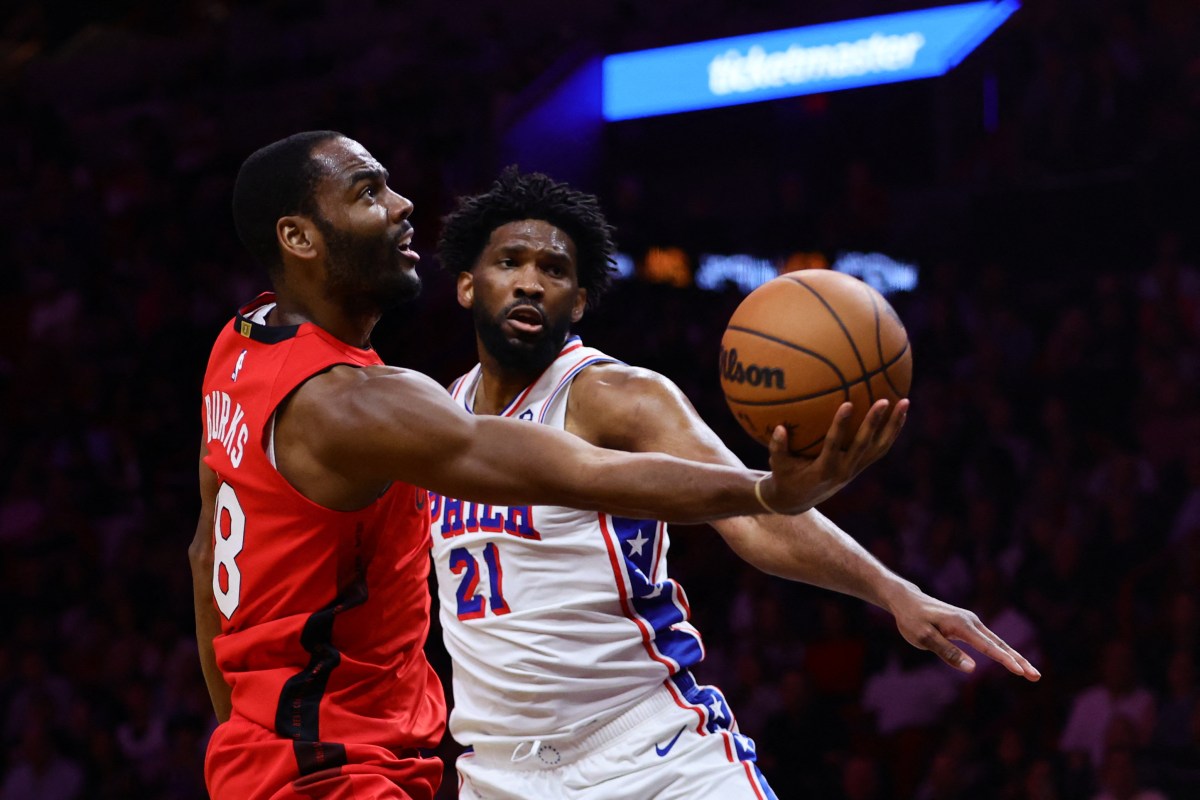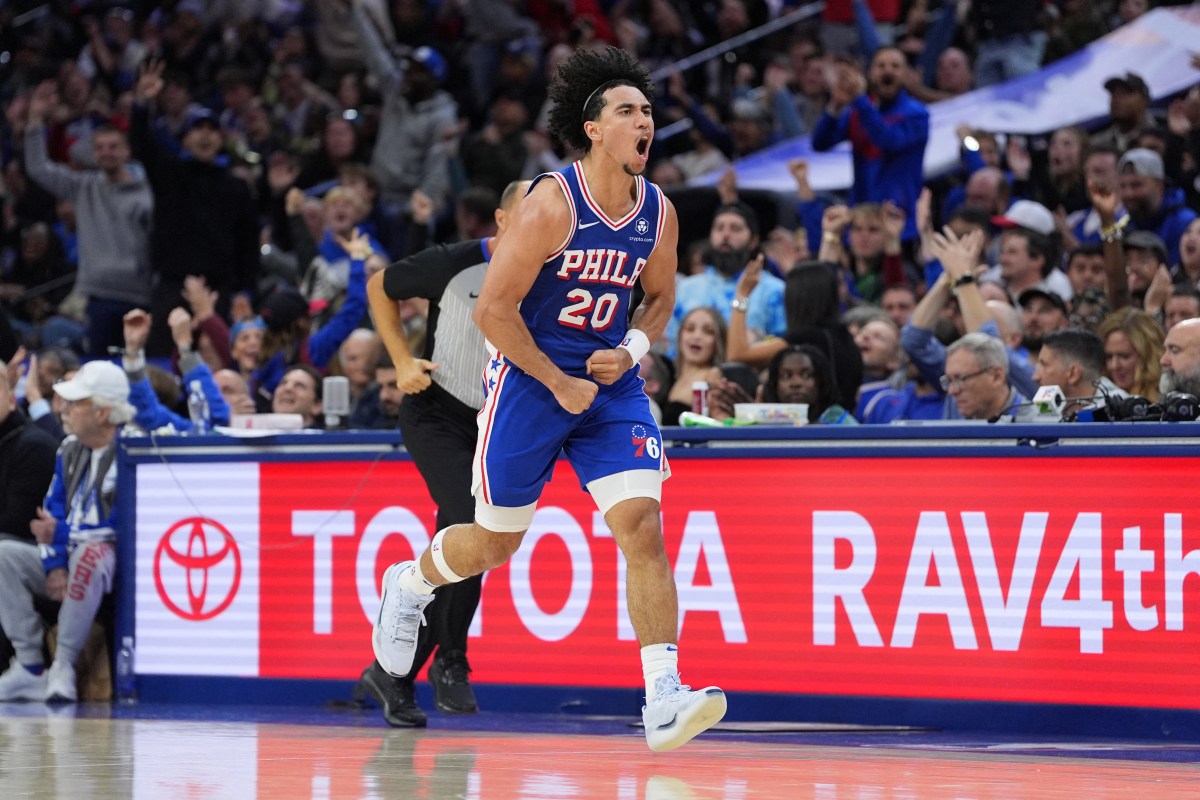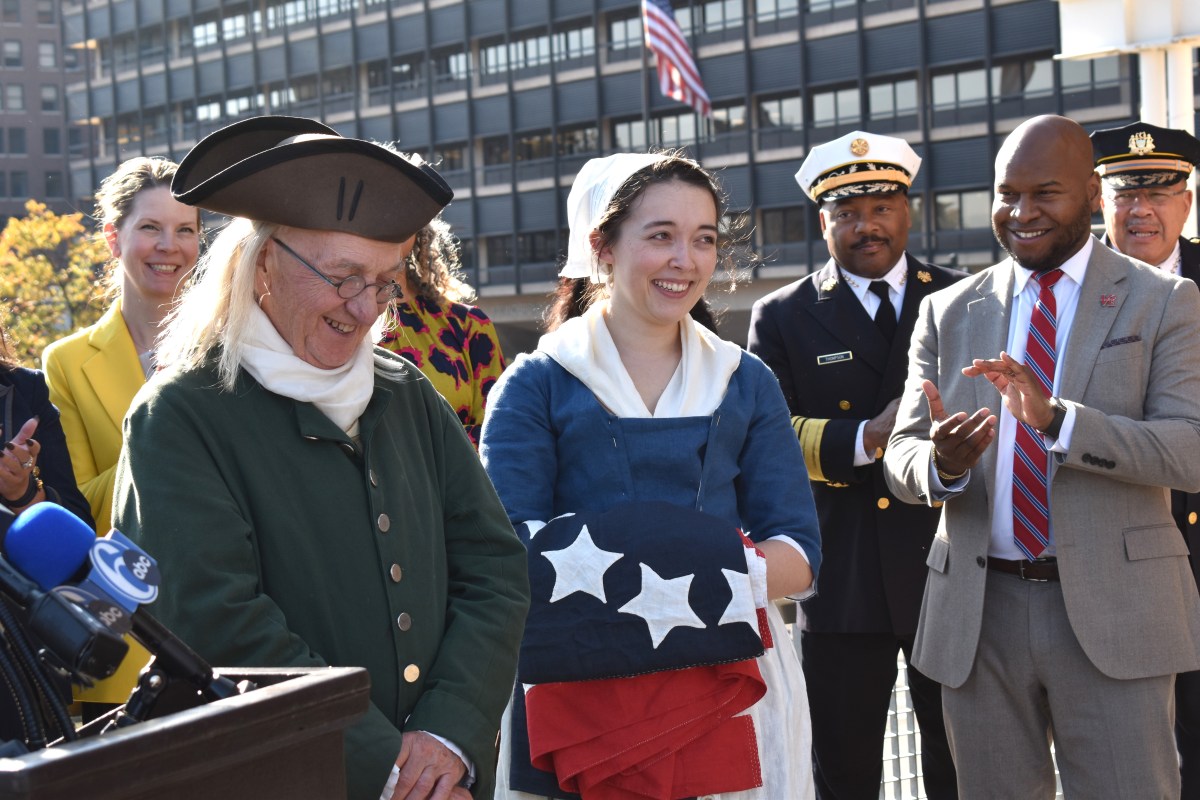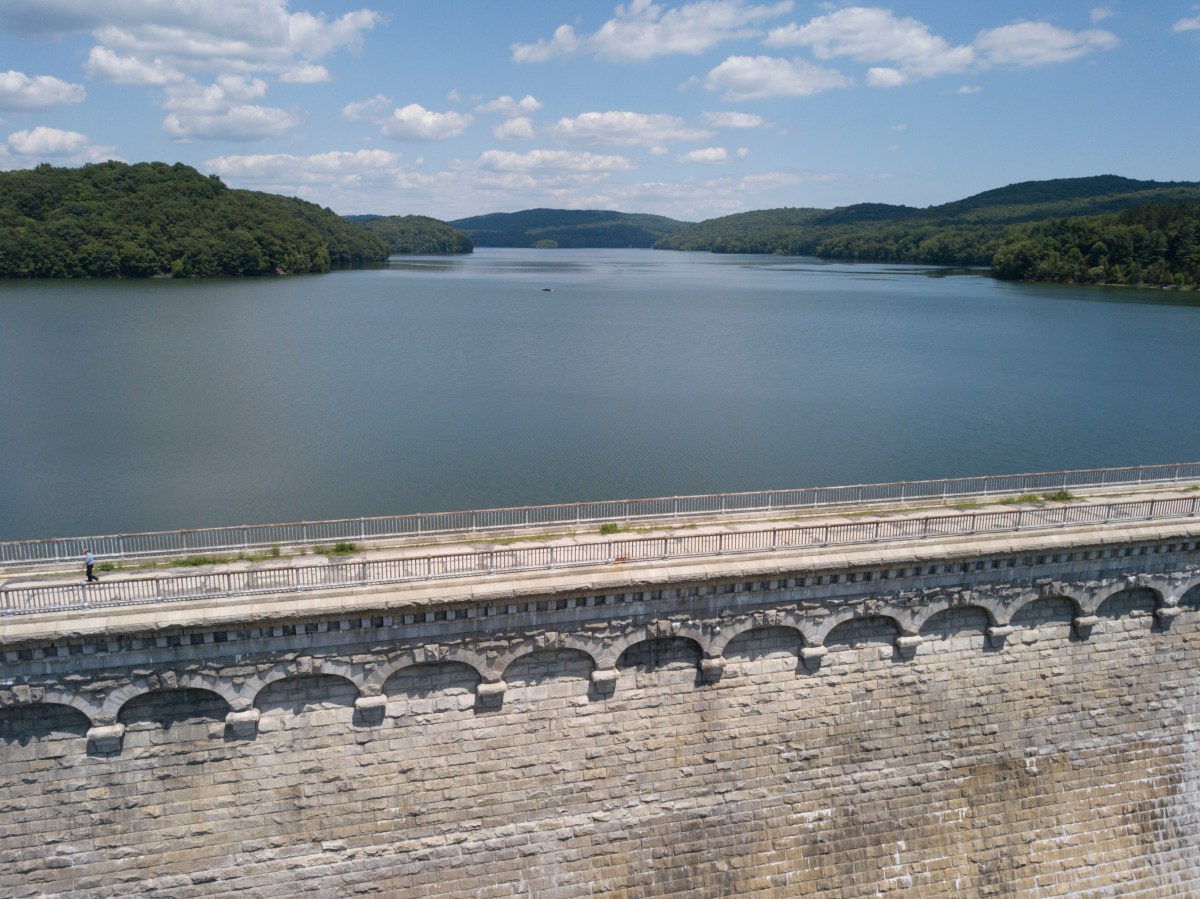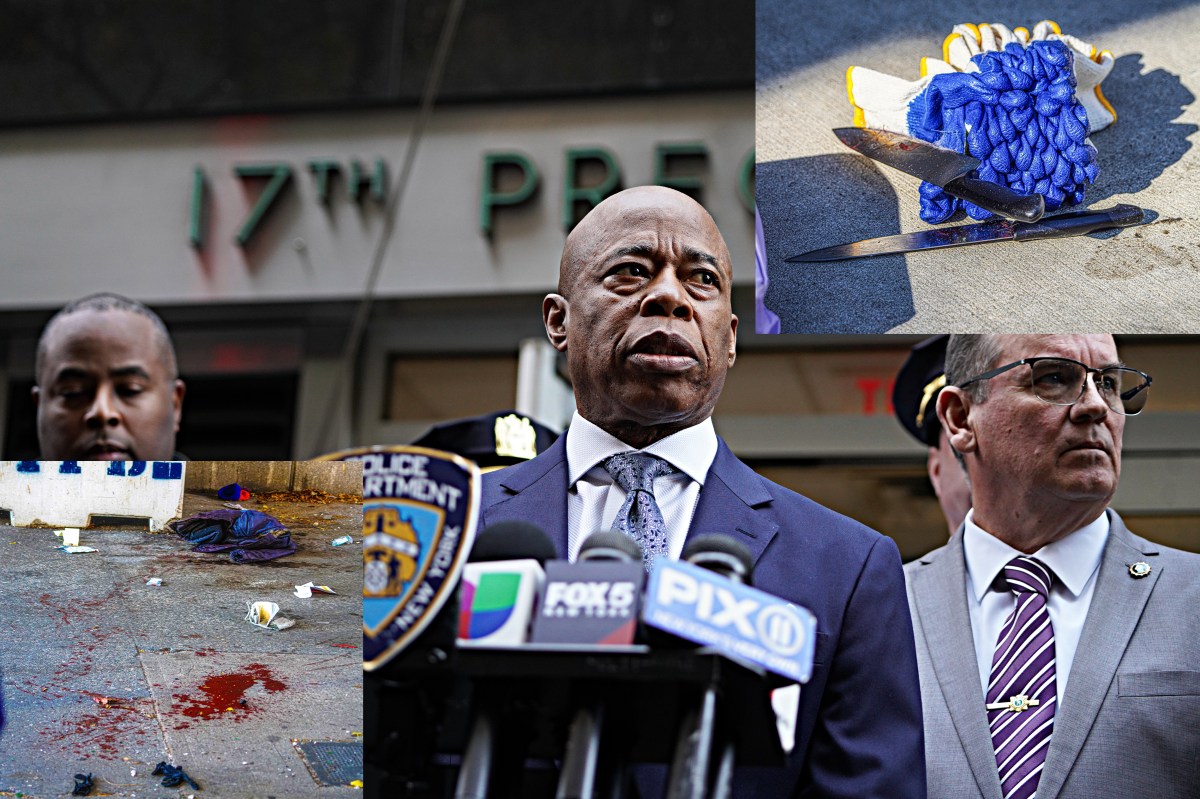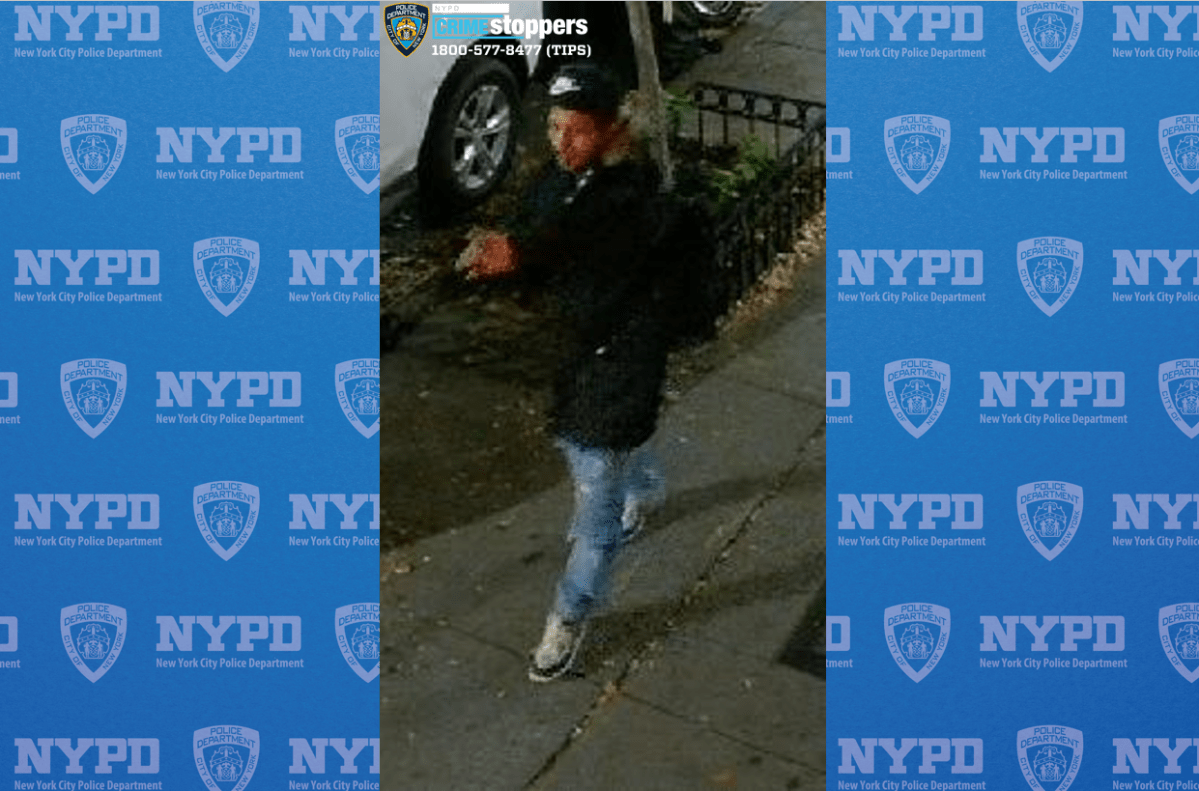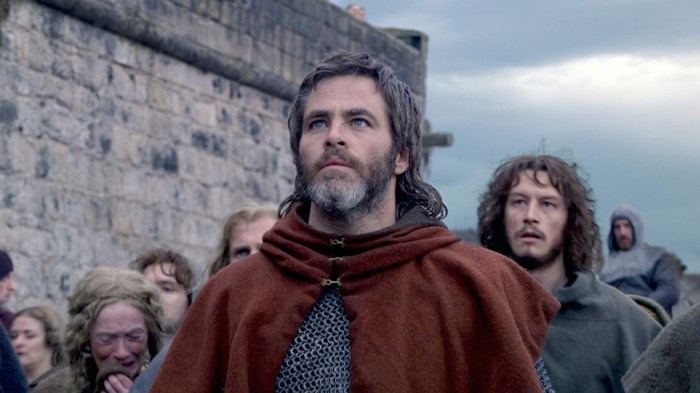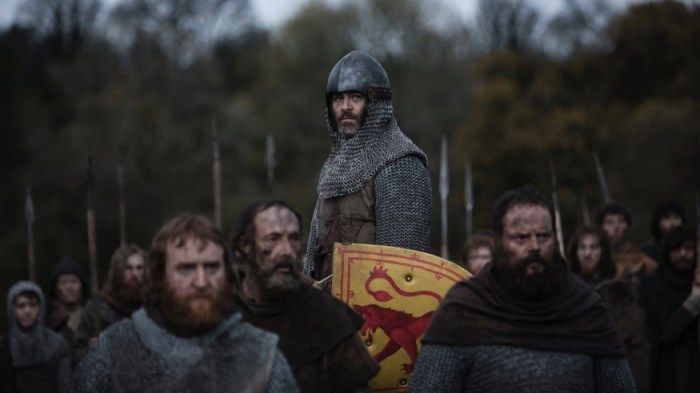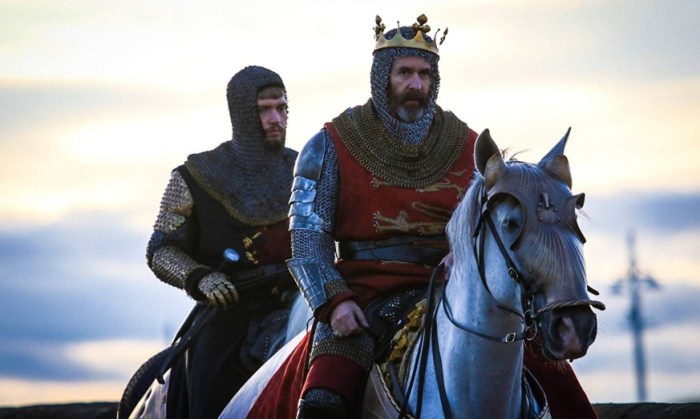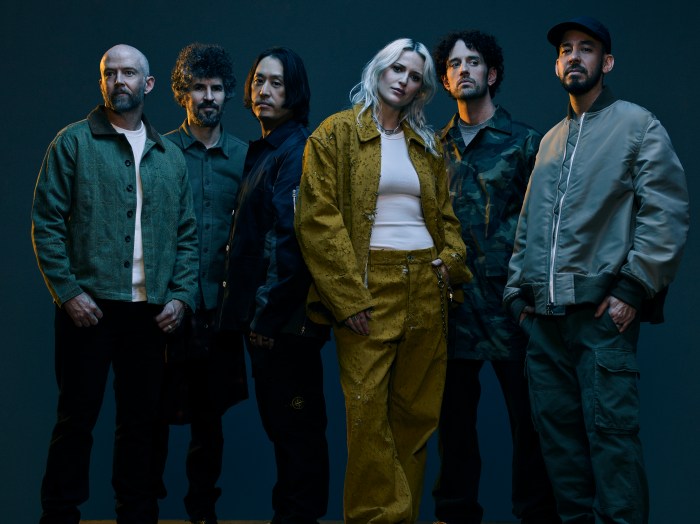The story of Robert The Bruce launching a guerrilla war against the English army in the early 14th-century is as epic and complicated as they come.
However, sometimes epic and complicated doesn’t make for the most riveting of movies.
So when director David Mackenzie set out to tell this story with Chris Pine as his Robert he quickly made the choice to focus on a specific period of time rather than trying to tell the whole story.
“What Robert does starts in 1296 and ends in 1329, so that’s a big period to cover,” Mackenzie recently explained to me over the phone.
“Basically a biopic was not the kind of thing that I was after doing. So we had to work on the script and refine it and refine it and refine it.”
In his research, Mackenzie quickly found a specific period early in the guerrilla war between Scotland and England that he wanted to focus on.
“I didn’t want to create any mythology. I was trying to demythologize all of the time. We were trying to be as honest as we could to the events of history.”
“Each time I was delving back into the history and trying to find something. I found this period, which is basically the period when the film happens in, which is only a year and a half, the main events of it.”
“He goes down, up, down, really down, and then claws his way up again. It was a really turbulent period and that felt like it was the exciting thing.”
“And one that no-one really knows about. People know parts of it. But to the best of my knowledge even historians haven’t pinpointed to that part of the history as the major time when things happened.”
“Because the rest took a long time to tie up loose ends and unify things. But the chunky events are as described in the movie.”
“The choices of going for that two-year period where everything seems to happen in a rush was part of the decision why we ended where we ended.”
“But if felt to me like this battle, which is not a very well known battle that ends the film, was the first sort of open battle where, you know, he had failed.”
“It is mentioned before that they had never won an open battle and he is heavily defeated in that surprise attack. So it was a major turning point.”
“It was the first time when he used the landscape to his advantage and built the trenches, which was based on historical documents. It felt to me that was a more interesting place to end the bulk of the film.”
“Obviously there is a little bit of a coda. But to go into some of the things that we already know about and already have all the mythology about them, but apart from everything else, that’s the film I have been talking about.”
“I couldn’t possibly have put all of the complex history that gets him to the place that he needs to get to into the same film without compromising everything.”
“It was a choice not to go into the more famous battle. Which also happened 8 years later. So I’d have had to go back and see him negotiate things, and then it becomes episodic television.”
“That wasn’t what I wanted to make. I wanted the challenge of making a film, making a thing over one singular experience.”
Ultimately, though, just how truthful is “Outlaw King”?
“I say at the beginning of the film all of the events are based on historical record. There’s some conflation. That opening scene is conflating a lot of stuff to get the history of the film shoehorned into it, so that the audience can understand where they’re coming from.”
“That’s the reason why I did that opening shot, which was to get everything in so the audience is fully immersed into the worries of the world.”
“There was some conflation in other areas. But the main events of the film, you know, there’s historical records of it.”
“Where it is harder is character. Because character is something that history isn’t very good at giving. We have created, I hope, some really strong and vivid cinematic characters, based on these people.”
“All of the actors were very keen on delving into the historical reality of these characters. We also have some really strong human interactions that is not a history lesson, but is a character study. Hopefully it is exciting and entertaining.”
“Outlaw King” is now on Netflix.

